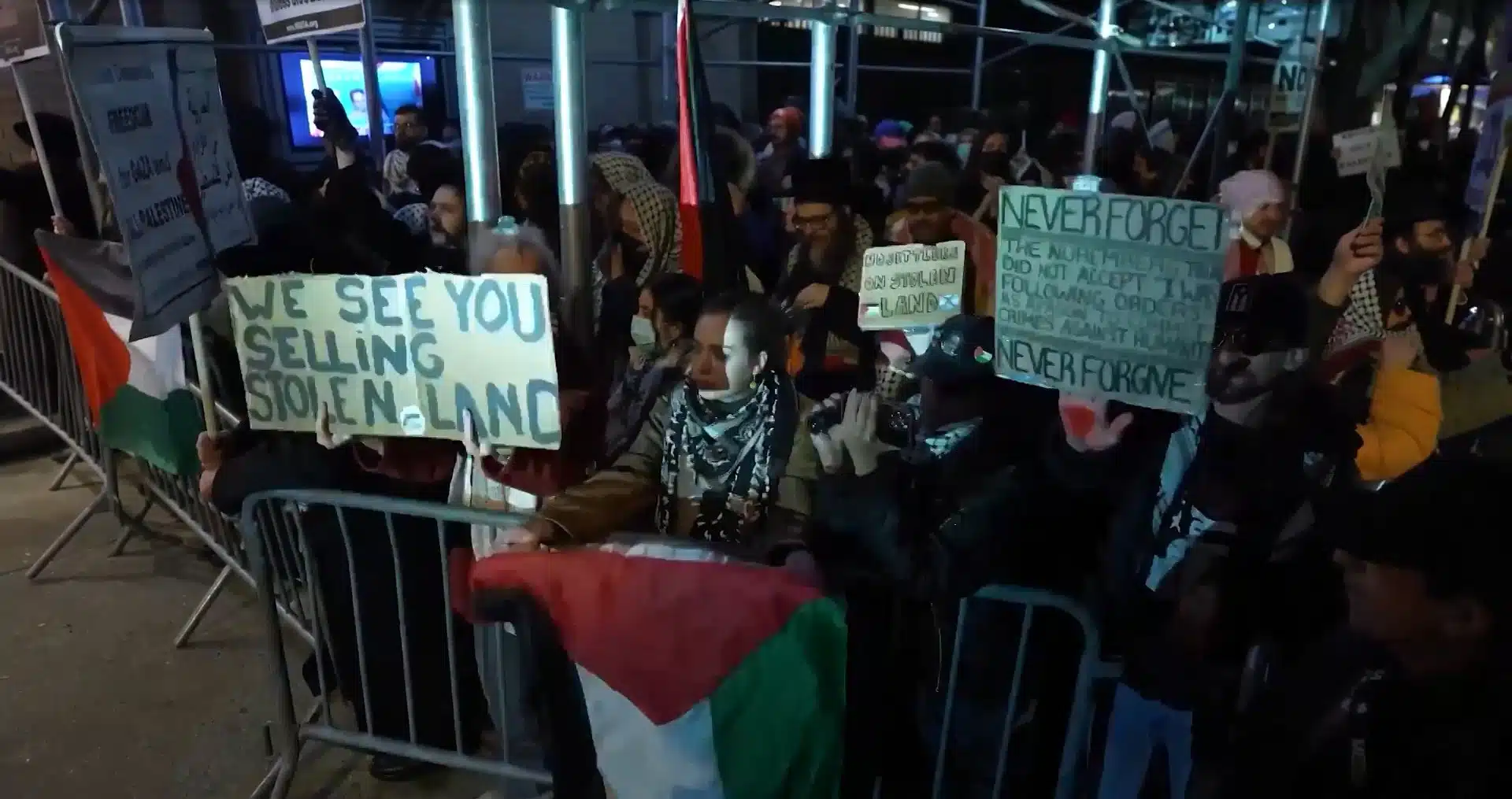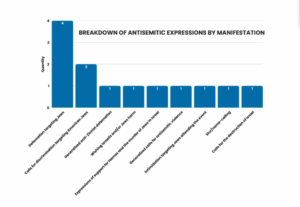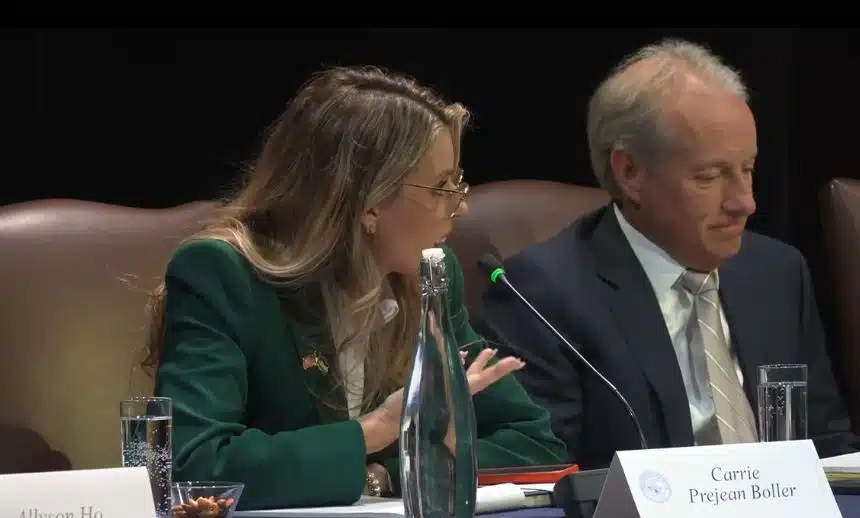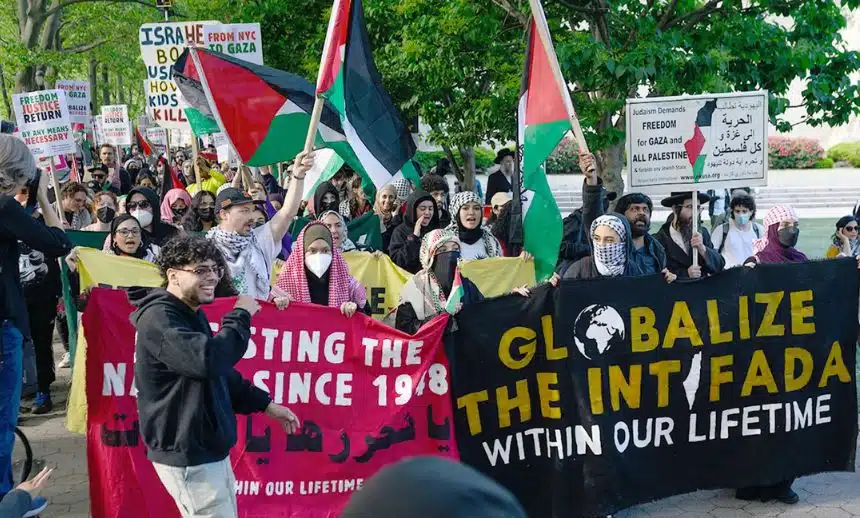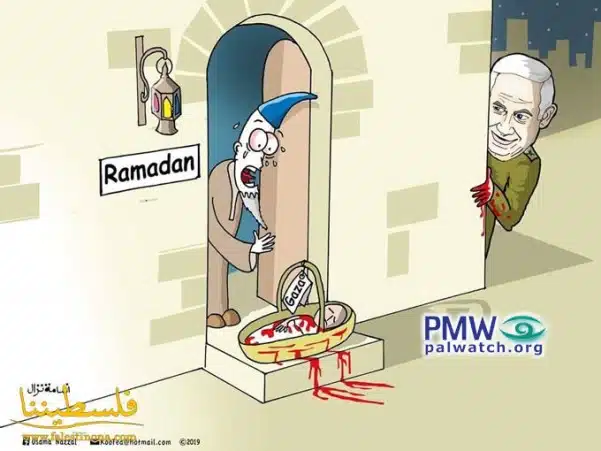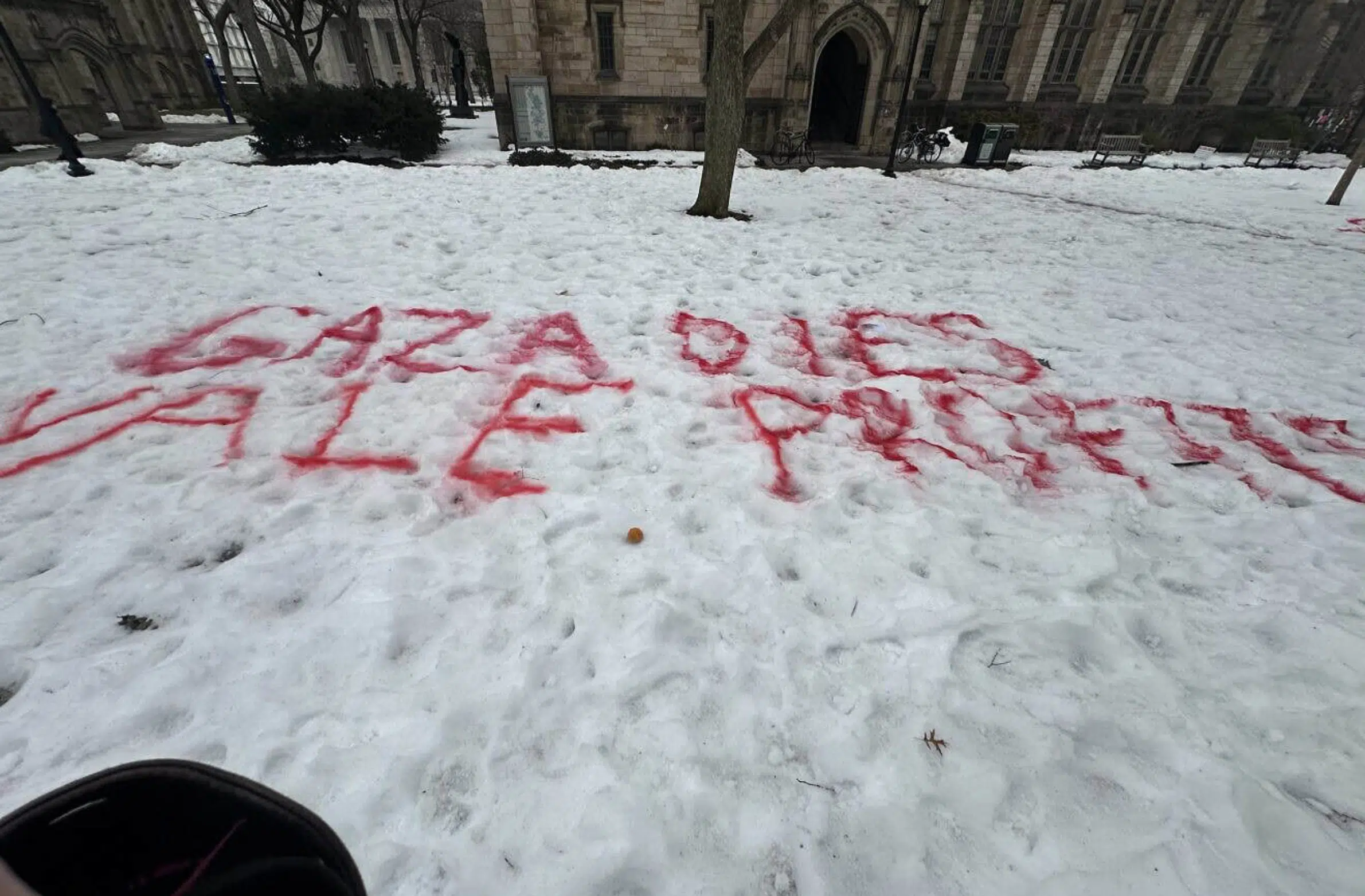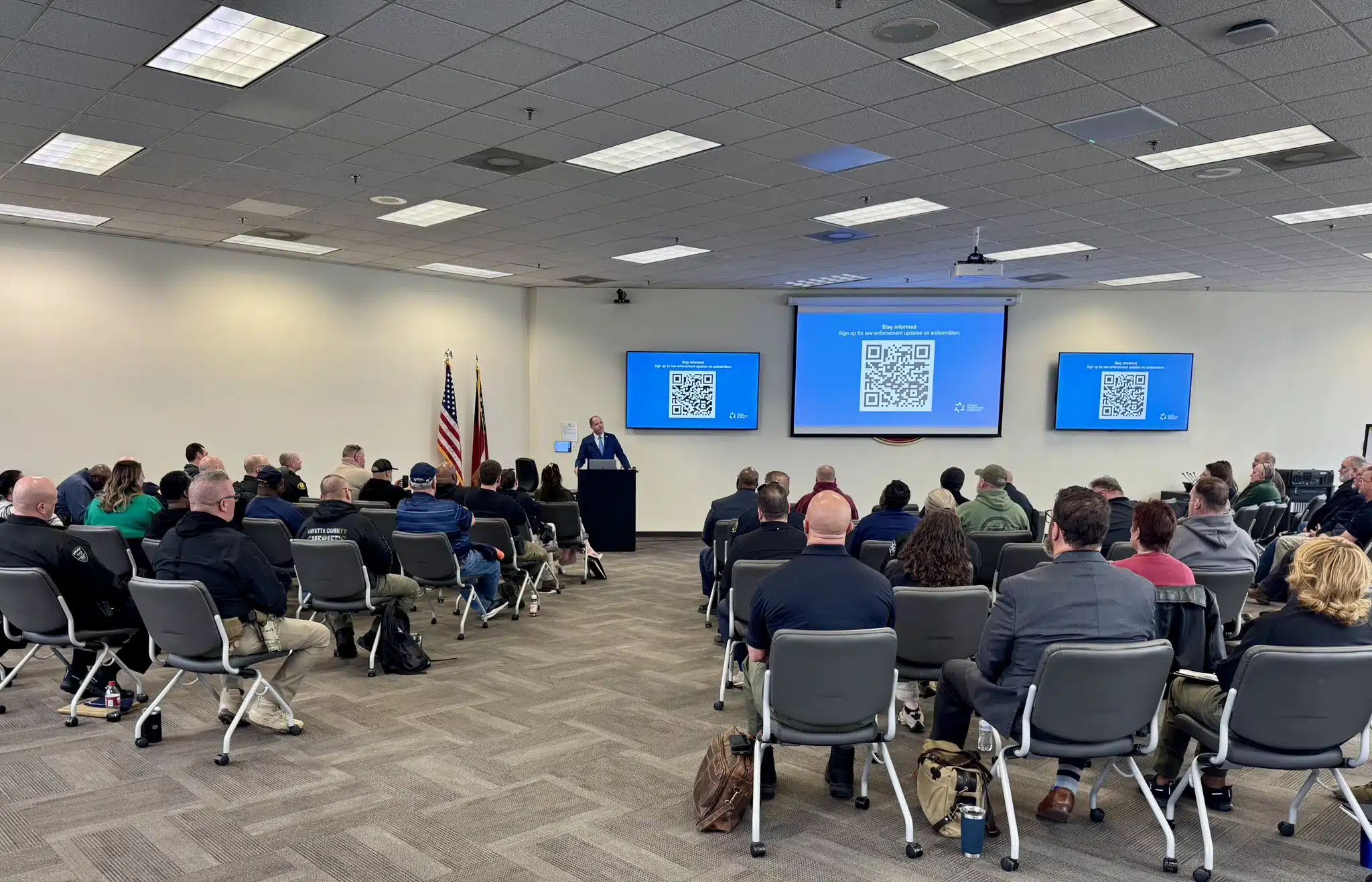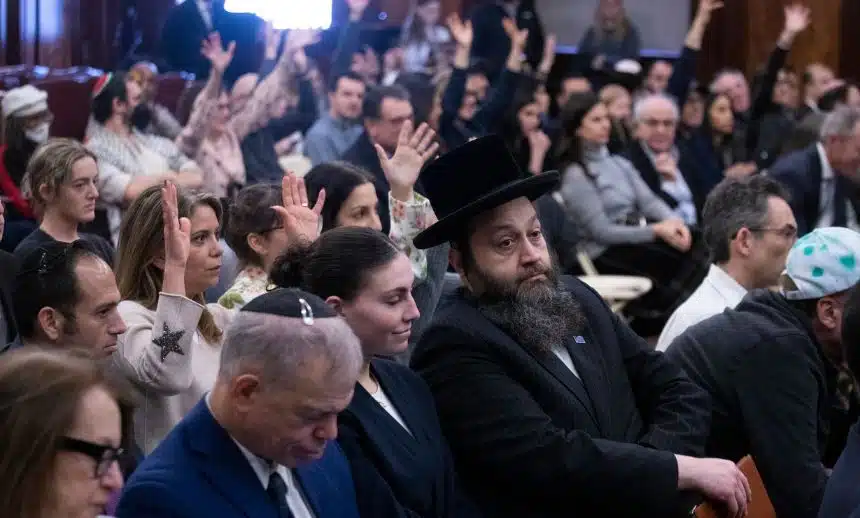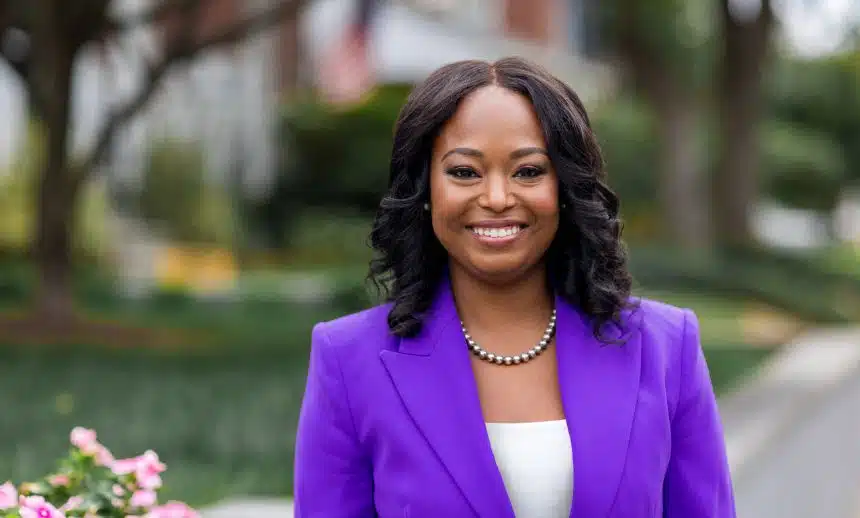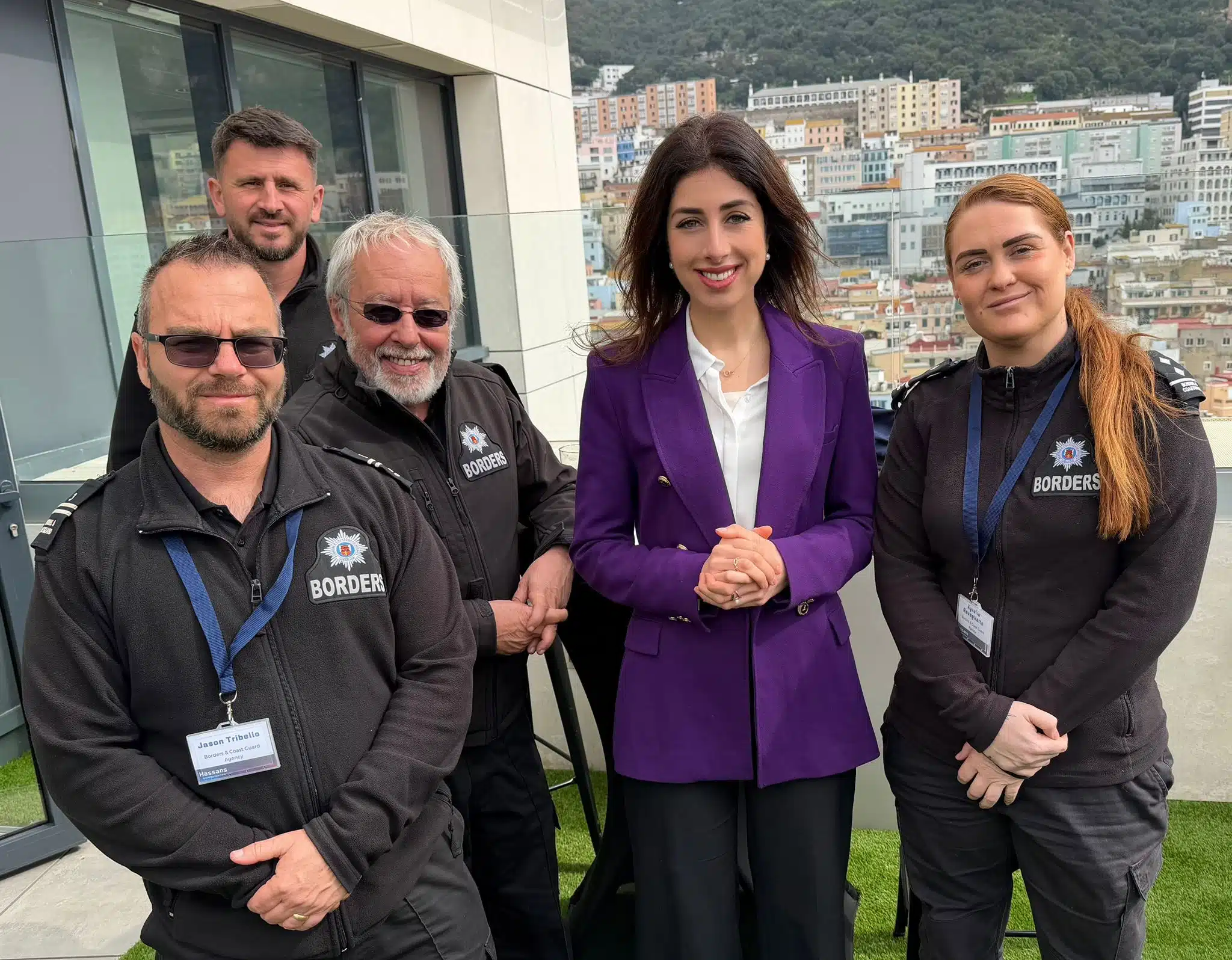|
Getting your Trinity Audio player ready...
|
On November 19, anti-Israel demonstrators gathered outside Park East Synagogue in Manhattan, where Nefesh B’Nefesh was hosting an aliyah information session. The chants and placards made clear that the protest targeted both the synagogue and the Jews attending the event inside. The rhetoric documented that night revealed a coordinated effort to intimidate those present and portray Jewish immigration to Israel as illegitimate.
The protest was led by the New York and New Jersey branch of Al-Awda, which has public ties to Samidoun. The U.S. Treasury Department has designated Samidoun as a fundraising front for the Popular Front for the Liberation of Palestine, a U.S.-listed terrorist organization. Al-Awda’s praise for Hamas’ October 7th massacre as a “brave” act provides clear insight into the ideological framework behind this demonstration.
CAM’s Antisemitism Research Center (ARC) examined verified traditional and social media footage and analyzed thirteen antisemitic expressions recorded during the protest. Together, they reveal a pattern of hostility unmistakably aimed at Jews, Jewish identity, and Jewish connection to Israel.
ARC Findings: Thirteen Expressions of Antisemitic Hostility
ARC’s analysis found that the thirteen expressions fell into several overlapping manifestations of contemporary antisemitism.
1. Calls to exclude and intimidate Jews
A sign reading “Brooklyn out of Palestine” targeted one of the largest Jewish communities in the United States. In this context, “Brooklyn” functioned as a euphemism for Jews. The message communicated that Jews should be barred from Israel, denying their right to live in the Jewish homeland and reinforcing a familiar pattern of discriminatory hostility.
Chants of “We don’t want no Zionists here” carried the same intention. “Zionist” was used as a stand-in for Jews, allowing activists to mask discrimination as political critique. Another chant, “We need to make them scared,” revealed the demonstrators’ intent — to frighten Jews away from entering a synagogue and from exploring the possibility of moving to Israel.
2. Generalized defamation of Zionism and of Jews
A sign declaring “Zionism is a death cult” attempted to portray the Jewish movement for self-determination as inherently violent. This rhetoric was also directed at individuals. Protesters shouted “You’re part of a death cult” at Jewish counter-demonstrators, extending the defamatory framing directly to Jews present at the scene.
3. Support for violence against Jews
Chants such as “Resistance you make us proud, take another settler out” celebrated attacks on Jews in Israel. “Resistance” was used as a coded reference to terrorist groups, including Hamas, while “settler” functioned as a pejorative label for any Jewish person living in Israel.
Another chant, “We don’t want no two states, we want all of it,” rejected peaceful coexistence and endorsed the elimination of the State of Israel.
4. Calls for harm
Protesters shouted “Death to the IDF,” a chant that, though framed as opposition to Israel’s military, expressed broader hatred toward Israeli Jews and rejected the Jewish people’s right to self-defense. It further intensified the threatening atmosphere outside the synagogue.
5. Global incitement
“Globalize the Intifada” invoked the Second Intifada, a period during which more than one thousand Israelis were murdered in suicide bombings, shootings, and other terrorist attacks. Calling to globalize that violence constitutes an endorsement of attacks on Jews worldwide.
6. Classic antisemitic slurs
The ARC documented several dehumanizing slurs aimed directly at Jews present, including “Fucking Jewish pricks,” “rapists,” “racists,” and “pedophiles.” These accusations rely on patterns of antisemitic defamation that portray Jews as immoral, dangerous, or inherently corrupt.
Taken together, these thirteen slogans make clear that the crowd was not protesting Israeli policy. They were targeting Jews. Holding the rally outside a synagogue, and directing it at an aliyah event, only underscored that intent.
A Surge of Israel-Related Antisemitism Worldwide
Hamas’ October 7th massacre sparked a global wave of antisemitic hostility. ARC recorded 6,326 incidents of antisemitism in 2024, the highest annual total since it began monitoring. Between January 1 and November 20, 2025, ARC has already documented 6,148 incidents, suggesting the year will surpass the previous high.
Most incidents since October 7th have involved Israel-related antisemitism. In 2024, more than seventy percent of all recorded cases featured rhetoric that attacked Israel or Zionism but drew on well-established antisemitic themes. These narratives portray Jews as malevolent, foreign, or collectively responsible for global injustice, providing a pretext for hostility far beyond the Middle East.
A central feature of this trend is the effort to recast Jewish identity and Jewish connection to Israel as incompatible with progressive values. Activists increasingly frame that connection as inconsistent with human rights, racial justice, climate justice, or anti-colonial movements. This rhetorical shift allows anti-Israel activists to portray antisemitism as principled activism and to target Jewish spaces under the guise of political critique.
Protests like the one at Park East Synagogue reveal how these narratives threaten Jewish life in the United States. When extremists channel their anger toward Jewish institutions and events, they send a clear message that Jewish identity itself is the target. That message turns harassment and intimidation into something acceptable and encourages others to follow their lead.
When Leaders Legitimize Hostility, the Danger Deepens
Political responses can either protect Jewish communities or exacerbate risks. The reaction from New York City Mayor-elect Zohran Mamdani’s office raised serious concerns. His statement implying that the Nefesh B’Nefesh event “promoted activities in violation of international law” reframed a routine aliyah information session as something illicit. That message echoed the demonstrators’ narrative and lent it unwarranted legitimacy.
Mamdani is affiliated with the Democratic Socialists of America, a group with a well-documented pattern of extreme anti-Israel rhetoric, including expressions of sympathy for Hamas. He has also consistently avoided condemning the slogan “Globalize the Intifada.” Even after public backlash, he limited his comments to saying he would not personally use the phrase, pointedly refusing to denounce its explicit call to expand violence against Jews worldwide. When a political leader casts Jewish immigration to Israel as unlawful and refuses to condemn calls to “Globalize the Intifada,” it emboldens those who target Jews outside synagogues and contributes to the normalization of antisemitism.
This framing carries direct consequences. It disguises intimidation as activism, blurs the threat facing Jewish communities, and weakens efforts to protect Jewish life in the nation’s largest Jewish population center.
A Clear Warning for Jewish Communities Nationwide
What occurred outside Park East Synagogue reflects a broader pattern of escalation. Jewish institutions are being targeted not for political debate but for their Jewish character. The rhetoric recorded that night included praise for terrorism, explicit calls for intimidation, demands to exclude Jews from public spaces, and dehumanizing slurs. These threats represent an attempt to make Jewish life in America feel unsafe.
In this environment, political and civic leaders must respond without hesitation. There is no room for ambiguity when Jews are surrounded outside synagogues and subjected to chants rooted in violence and hatred. The safety of Jewish communities depends on unequivocal condemnation, not equivocation or language that grants legitimacy to extremist narratives.
As extremist groups seek to intimidate Jews and undermine the legitimacy of Jewish connection to Israel, clear and courageous leadership is essential. Protecting Jewish life in the United States requires recognizing these incidents for what they are — targeted efforts to erode Jewish safety and normalize antisemitism under the guise of activism.

